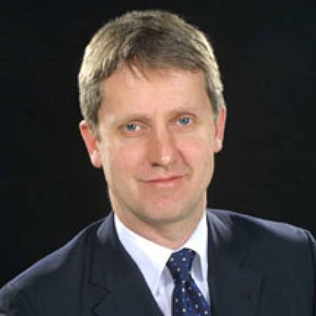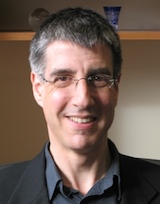
Cognitive neuroscience is the scientific field that is concerned with the study of the biological processes and aspects that underlie cognition, with a specific focus on the neural connections in the brain which are involved in mental processes. It addresses the questions of how cognitive activities are affected or controlled by neural circuits in the brain. Cognitive neuroscience is a branch of both neuroscience and psychology, overlapping with disciplines such as behavioral neuroscience, cognitive psychology, physiological psychology and affective neuroscience. Cognitive neuroscience relies upon theories in cognitive science coupled with evidence from neurobiology, and computational modeling.
The following outline is provided as an overview of and topical guide to neuroscience:

Functional neuroimaging is the use of neuroimaging technology to measure an aspect of brain function, often with a view to understanding the relationship between activity in certain brain areas and specific mental functions. It is primarily used as a research tool in cognitive neuroscience, cognitive psychology, neuropsychology, and social neuroscience.
Cognitive neuropsychiatry is a growing multidisciplinary field arising out of cognitive psychology and neuropsychiatry that aims to understand mental illness and psychopathology in terms of models of normal psychological function. A concern with the neural substrates of impaired cognitive mechanisms links cognitive neuropsychiatry to the basic neuroscience. Alternatively, CNP provides a way of uncovering normal psychological processes by studying the effects of their change or impairment.
Anthony David FMedSci is a British neuropsychiatrist based at University College London. Previously tenured as professor of cognitive neuropsychiatry and Vice Dean at the Institute of Psychiatry, King's College London, since 2018 he has been Director, University College London, Institute of Mental Health. He is the father of Rebecca David, a Senior Campaign Manager at Influencer LTD and Michael David a junior doctor.
Geraint Ellis Rees is Vice-Provost of research, innovation & global engagement at University College London (UCL). Previously he served as Dean of the UCL Faculty of Life Sciences, UCL Pro-Provost, Pro-Vice-Provost (AI) and a Professor of Cognitive Neurology at University College London. He is also a Director of UCL Business, a trustee of the Alan Turing Institute, a trustee of the Francis Crick Institute and a trustee of the Guarantors of Brain.
Neuroanthropology is the study of the relationship between culture and the brain. This field of study emerged from a 2008 conference of the American Anthropological Association. It is based on the premise that lived experience leaves identifiable patterns in brain structure, which then feed back into cultural expression. The exact mechanisms are so far ill defined and remain speculative.

Uta Frith is a German-British developmental psychologist and Emeritus Professor in Cognitive Development at the Institute of Cognitive Neuroscience at University College London (UCL). She pioneered much of the current research into autism and dyslexia. Her book Autism: Explaining the Enigma introduced the cognitive neuroscience of autism. She is credited with creating the Sally–Anne test along with fellow scientists Alan Leslie and Simon Baron-Cohen. Among students she has mentored are Tony Attwood, Maggie Snowling, Simon Baron-Cohen and Francesca Happé.

Jonathon Stevens "Jon Driver" was a psychologist and neuroscientist. He was a leading figure in the study of perception, selective attention and multisensory integration in the normal and damaged human brain.

Marc Jeannerod was a neurologist, a neurophysiologist and an internationally recognized expert in cognitive neuroscience and experimental psychology. His research focuses on the cognitive and neurophysiological mechanisms underpinning motor control, motor cognition, the sense of agency, and more recently language and social cognition. Jeannerod's work bridges with elegance and rigor various levels of analysis, ranging from neuroscience to philosophy of mind, with clear implications for the understanding of a number of psychiatric and neurological disorders, especially schizophrenia.
Karl John Friston FRS FMedSci FRSB is a British neuroscientist and theoretician at University College London. He is an authority on brain imaging and theoretical neuroscience, especially the use of physics-inspired statistical methods to model neuroimaging data and other random dynamical systems. Friston is a key architect of the free energy principle and active inference. In imaging neuroscience he is best known for statistical parametric mapping and dynamic causal modelling. In October 2022, he joined VERSES Inc, a California-based cognitive computing company focusing on artificial intelligence designed using the principles of active inference, as Chief Scientist.

Eleanor Anne Maguire is an Irish neuroscientist. Since 2007, she has been Professor of Cognitive Neuroscience at University College London where she is also a Wellcome Trust Principal Research Fellow.

Daniel Mark Wolpert FRS FMedSci is a British medical doctor, neuroscientist and engineer, who has made important contributions in computational biology. He was Professor of Engineering at the University of Cambridge from 2005, and also became the Royal Society Noreen Murray Research Professorship in Neurobiology from 2013. He is now Professor of Neurobiology at Columbia University.

Francesca Gabrielle Elizabeth Happé is Professor of Cognitive Neuroscience and Director of the MRC Social, Genetic and Developmental Psychiatry Centre at the Institute of Psychiatry, Psychology and Neuroscience, King's College London. Her research concerns autism spectrum conditions, specifically the understanding social cognitive processes in these conditions.

Sarah-Jayne Blakemore is Professor of Psychology and Cognitive Neuroscience at the University of Cambridge and co-director of the Wellcome Trust PhD Programme Neuroscience at University College London.

John-Dylan Haynes is a British-German brain researcher.
Social cognitive neuroscience is the scientific study of the biological processes underpinning social cognition. Specifically, it uses the tools of neuroscience to study "the mental mechanisms that create, frame, regulate, and respond to our experience of the social world". Social cognitive neuroscience uses the epistemological foundations of cognitive neuroscience, and is closely related to social neuroscience. Social cognitive neuroscience employs human neuroimaging, typically using functional magnetic resonance imaging (fMRI). Human brain stimulation techniques such as transcranial magnetic stimulation and transcranial direct-current stimulation are also used. In nonhuman animals, direct electrophysiological recordings and electrical stimulation of single cells and neuronal populations are utilized for investigating lower-level social cognitive processes.
Catherine J. "Cathy" Price is a British neuroscientist and academic. She is Professor of Cognitive Neuroscience and director of the Wellcome Trust Centre for Neuroimaging at University College London.
Roshan Cools is a Professor of Cognitive Neuropsychiatry at Radboud University Nijmegen. She is interested in the motivational and cognitive control of human behaviour and how it is impacted by neuromodulation. She was elected to the Royal Netherlands Academy of Arts and Sciences in 2018.
Lambros Malafouris is a Greek-British cognitive archaeologist who has pioneered the application of concepts from the philosophy of mind to the material record. He is Professor of Cognitive and Anthropological Archaeology at the University of Oxford. He is known for Material Engagement Theory, the idea that material objects in the archaeological record are part of the ancient human mind.










